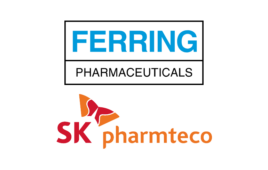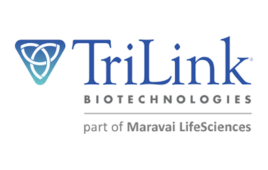Over the last 50 years, continuous manufacturing technologies have been slow to advance, remaining relatively unchanged. However, there has been an uptick in recent years in the dialogue surrounding continuous manufacturing and its potential applicability in the pharmaceutical and biopharmaceutical industries.
At the forefront, the U.S. Food and Drug Administration (FDA) now encourages companies to incorporate continuous manufacturing into their processes, stating it has a strong impact on drug quality.
“We know that the FDA, which has been encouraging industry adoption of new manufacturing technologies as a means to improve and ensure quality, is a strong advocate of continuous manufacturing,” said Eric Jayjock, Director of Continuous Manufacturing at Patheon, a contract development and manufacturing organization (CDMO).
In April of 2016, the FDA approved Johnson & Johnson’s switch from batch to continuous manufacturing for the production of Prezista, a drug used to treat HIV. Since that time, continuous manufacturing and continuous processing are buzz words on everyone’s lips.
“I think an increasing number of companies will continue to explore continuous manufacturing as an option,” said Jayjock.
Calling continuous manufacturing “game-changing,” Jayjock further explained that, on the development side, it has the potential to develop new products using a smaller quantity of active pharmaceutical ingredients (APIs).
“Once we are manufacturing in real time, the data-rich nature of this technology will enable us to continuously improve the process over time,” he continued.

Implementation Challenges
“The shift to and adoption of continuous manufacturing is a complex process,” said Jayjock. “It is not simply acquiring the necessary equipment, installing it, and hitting the ‘on’ button. Process control is essential and that requires expertise and time.”
However, some of the greatest hindrances are mindset and people skills due to the “expertise and time required to understand and implement the process,” according to Jayjock.
“Continuous manufacturing is a paradigm shift, and organizations will need to adapt to the approach. Developing an industry-leading team and culture is a key priority for the Patheon team,” he said.
One issue that many drugmakers face is the very real difficulty of shifting operations for facilities and systems already equipped for batch production.
“This is one of the challenges of the paradigm shift to continuous manufacturing,” said Jayjock. “When one examines the quality and cost incentives associated with a continuous manufacturing plant, they are very positive. However, when looking at it from a single product perspective, the gain is not as large. The shift to continuous manufacturing will require companies to take a longer look at the business benefits and commit to the path.”
Although not everyone will benefit from implementing continuous manufacturing, such as companies focused on making a single product, it’s safe to expect a number of hurdles.
“Like any new technology or process, there will be challenges and learnings and like any new technology there is always the opportunity to advance and improve,” said Jayjock.

Looking Ahead
“Continuous manufacturing will find the greatest success with organizations approaching it as a platform approach,” said Jayjock. “The high volume capability of the approach stresses the importance of a multi-product facility, much like our batch trains today.”
Patheon, which recently announced that Thermo Fisher Scientific will be acquiring the company in a $7.2 billion deal, will have fully functional continuous manufacturing operations in the fall of 2017.
“This manufacturing technology provides a better way to manufacture drug products, saves time and material in development, and is a more robust process than the batch approach,” said Jayjock. “Since the adoption of continuous manufacturing marks a paradigm shift, we realize that we need to build and train a top-notch team focused on how to bring this new state-of-the-art technology to the industry as smoothly and quickly as possible. So the basis of our approach is the idea that each piece of equipment is its own indistinct unit, and that that unit can then be worked in combination with other units to meet customer needs.”
The CDMO is headquartered in Durham, North Carolina and has international operations, with services encompassing preclinical, clinical, development, scale up, and commercial supply.
“Given the strong level of regulatory support, as well as the long-term cost and quality benefits, continuous manufacturing will have a significant impact on the pharmaceutical industry,” said Jayjock. “Over the past several years, there has been a shift in the momentum with more pharmaceutical companies exploring continuous manufacturing.”
This feature story can also be found in the July/August 2017 issue of Pharmaceutical Processing.
Follow us on Twitter and Facebook for updates on the latest pharmaceutical and biopharmaceutical manufacturing news!




